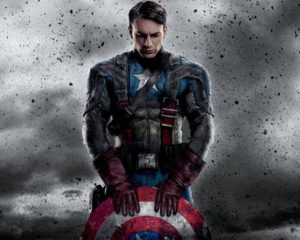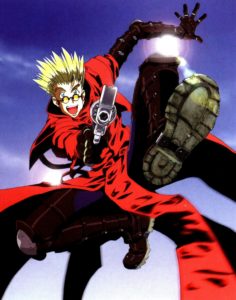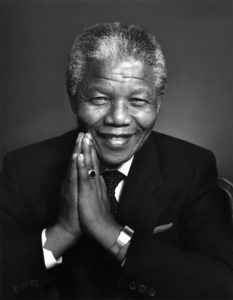One of the greatest and most famous writing archetypes is the hero. We have all seen a hero in action, but how much do we know about what a hero actually is? For the most confident in this answer, consider this: Does every story need a hero? Today we put the concept under a microscope to define a hero, examine why we love them, and study some examples.
Before we get started, there is a quick disclaimer we need to get out of the way. The links of example works below are Amazon Associate links. If you use one the Merchants of the Void get a small commission, at no added cost to you. It’s a great way for you to help keep the website going while getting some cool stuff at the same time! All links will open in a new window or tab so you won’t lose your place. Now let’s get under way!

Definition of a Traditional Hero
A traditional hero boils down to three simple elements: A sense of justice, strong core values, and a strong conscience. These elements make a hero highly recognizable without sacrificing diversity.
A Hero Has a Sense of Justice
The core of every traditional hero consists of a strong desire for justice. They have a strong desire to defend those that cannot defend themselves. In comic books and fantasies, they typically possess abilities that allow them to stand fast against the darkness. In other genres they possess strong human characteristics, such as bravery. This provides a steel girder that supports the next two elements.
A Hero Fights for Their Values
A heroes sense of justice will cause them to fight tooth and nail for what they stand for. Their drive will not waiver in the face of impossible odds, threat of personal harm, or negative popular opinion. When they fail, it is only temporary as they will refuse to give up. Once they take on a cause, only death or victory will make them stop.
A Hero Listens to their Conscience
Their sense of justice also bolsters their conscience causing mental anguish when things go wrong. A good litmus test for this is to see how a hero reacts to taking a life. It happens to a hero when there is no alternative, the cost of not killing is too high, or an accident. When a hero does kill, the act will never be taken lightly, even if they had no chance of stopping it. Remember, an antihero who would chalk it up as a cost of doing business.
Why We Love a Hero
A Hero Gives Hope
The internet has brought us the ability to have mind boggling amounts of information at our fingertips. Unfortunately, this also has the effect of opening us to a torrent of information about horrible people doing horrible things. To say it’s enough to destroy ones faith in humanity is perhaps an understatement.

A good story with a strong hero brings us back from the brink and can change minds. Seeing a truly inspiring hero draws our attention to the best in the world and can help heal our minds. This took a strategic role during World War II when comic books were used as American propaganda to aid the war effort.
A Hero Is a Role Model
A hero gives us something to strive for in our own lives. Their endless bravery, compassion, and determination gives us an example to emulate in our own lives. We may not be able to lift a speeding train, but maybe we could follow that example in smaller ways. When we see someone being bullied, a hero provides an example of how we should respond.
A Hero Inspires Us
A hero not guides us to be better people, they also serve to inspire us to take action. There many things in life we know we should do, but we rarely take action. Maybe you don’t have the time and energy to volunteer at a homeless shelter. Perhaps there is not much point in picking up plastic trash at the beach when more will inevitably wash up.
These problems need passion to drive us and a hero gives us the spark we need to start a blaze. A compelling hero makes us want to follow them so strongly we dive into the Void to find a way. Some of you may remember the Captain Planet cartoons in the early 90’s. It was about as subtle as a brick through a window, but was quite effective in inspiring a generation to care about the environment.
Examples of Iconic Heroes
Steve Rogers (Captain America: The First Avenger, 2011)

Similar to Superman, Steve Rogers (aka Captain America) is a classic and clear-cut example of a traditional hero. He grew up a small and weak man and was transformed into a super soldier via an experimental growth serum. His meager beginnings taught him compassion and bravery causing him to use his powers to protect his country and fellow man.
His first assignment was to perform stage shows to sell war bonds. He later grows into a inspirational force for soldiers fighting on the front lines in World War II. Steve’s story is steeped in inspirational elements at every level making him a perfect example for heroes to come.
Vash the Stampede (Trigun, 1998)

Vash the Stampede is a unique take on a traditional hero. He travels around a harsh desert planet whose culture mirrors that of the Wild West. Order flows from the barrel of a gun, but that causes chaos when the bad guys are the most armed. Vash is the biggest and baddest of them all, sporting a 60 billion dollar bounty on his head.
As the story progresses, you quickly see two things about him: 1) He is indeed an incredible gunman whose skills are worthy of such a bounty. 2) He has a relentless determination to never take a life, no matter the cost. His body is horribly scarred from sacrificing himself to protect others, even villains. Ironically, his bad reputation stems from the amount of collateral damage caused by the mercenaries trying to collect the bounty.
Nelson Mandela (Invictus, 2009)

I recently watched the movie Invictus which follows the life of Nelson Mandela after he took office. The story is centered around the Springboks rugby team. They were not well loved by the black population because the white population supported them. Instead of re-branding the team, Nelson strongly encouraged the governing body to keep them as they were despite strong opposition. His reasoning was in order to reconcile the racial differences they could not afford to isolate either side.
You may think Nelson Mandela doesn’t qualify because he was real, but a hero doesn’t have to be fictional. Every now and then we see extraordinary people who find the strength to rise to role.
Wrap Up
Now we know what defines a hero, why we love them, and have examined a few different examples. What about my initial question: Does every story need a hero? No, they do not. The heart of a good story is conflict, and a hero helps generate this. A hero makes a protagonist, but they are not the only type of character that can fill the role. But that, my dear readers, is a story for another day.
This week’s book report:
Words Written (Week 10): 1,031 out of 2,500 (Yeah… this week did not go well.)
Words Left: 8,818 left
Last Three Words Written: dismissing her concerns. (Interesting excerpt, considering she was fighting for her life… Perhaps I’ve said too much.)




Get back to writing! I like that you included Nelson Mandela. We need to hear more about real life heroes to inspire us to believe that real people can make a difference and that heroes aren’t just alive as fictional characters.
Pingback: A New Year for the Merchants of the Void - Merchants of the Void